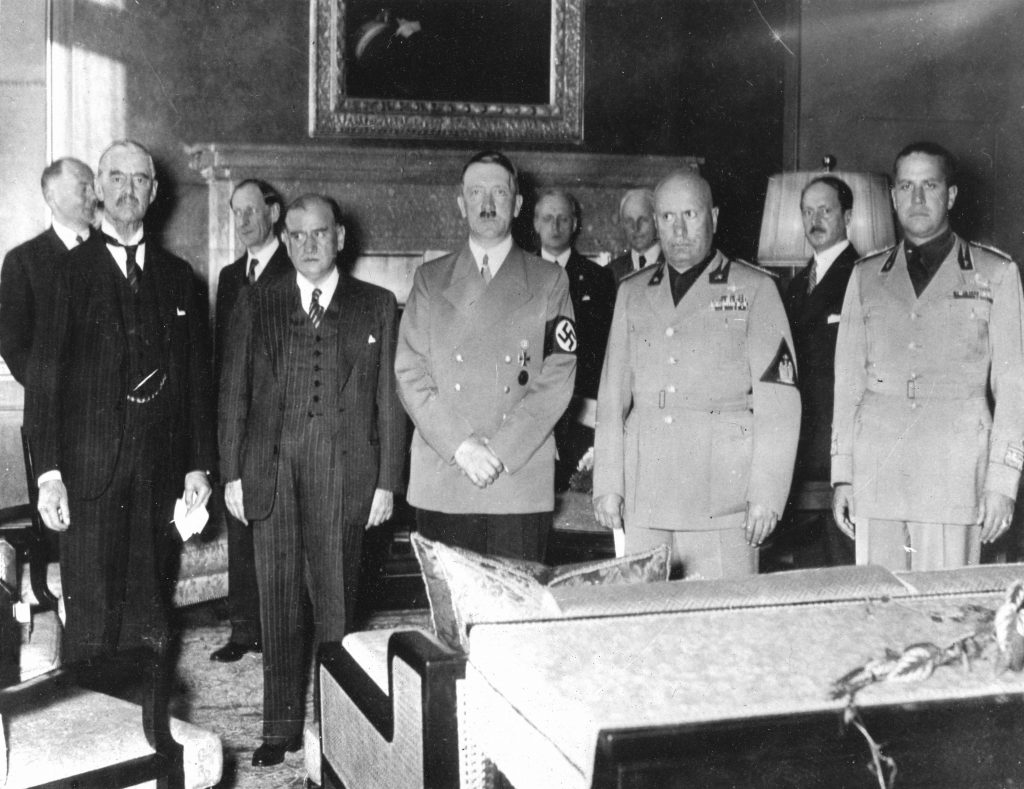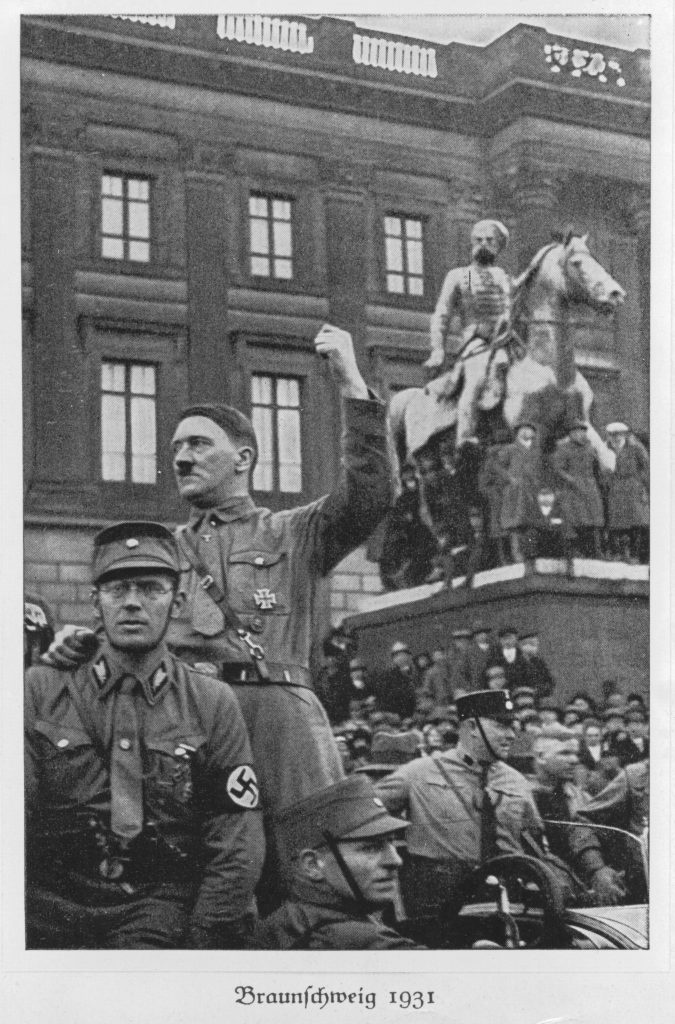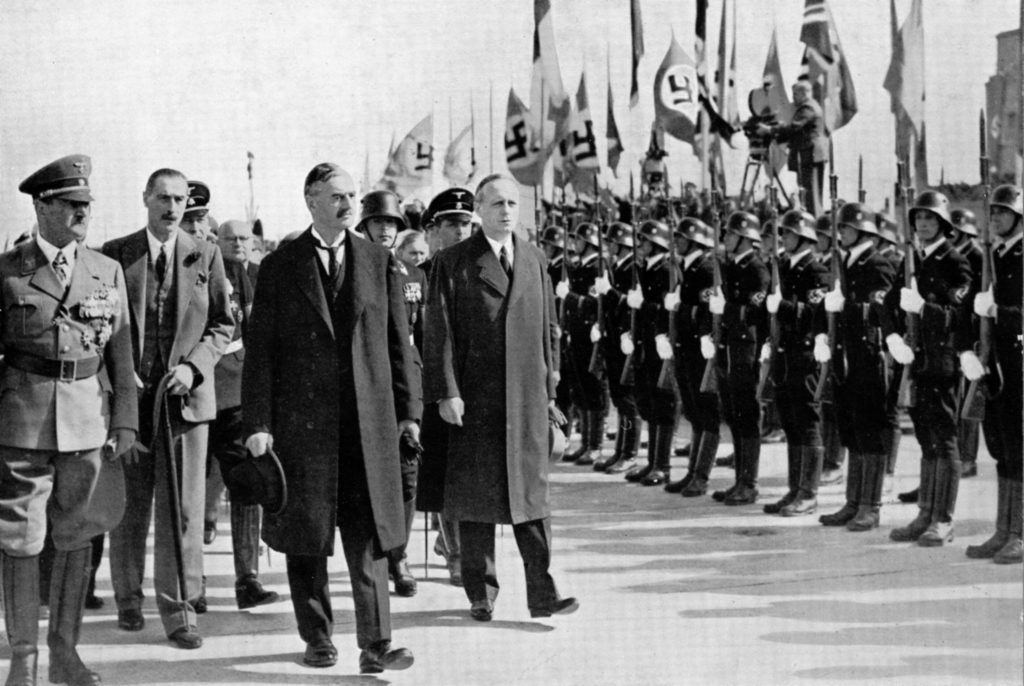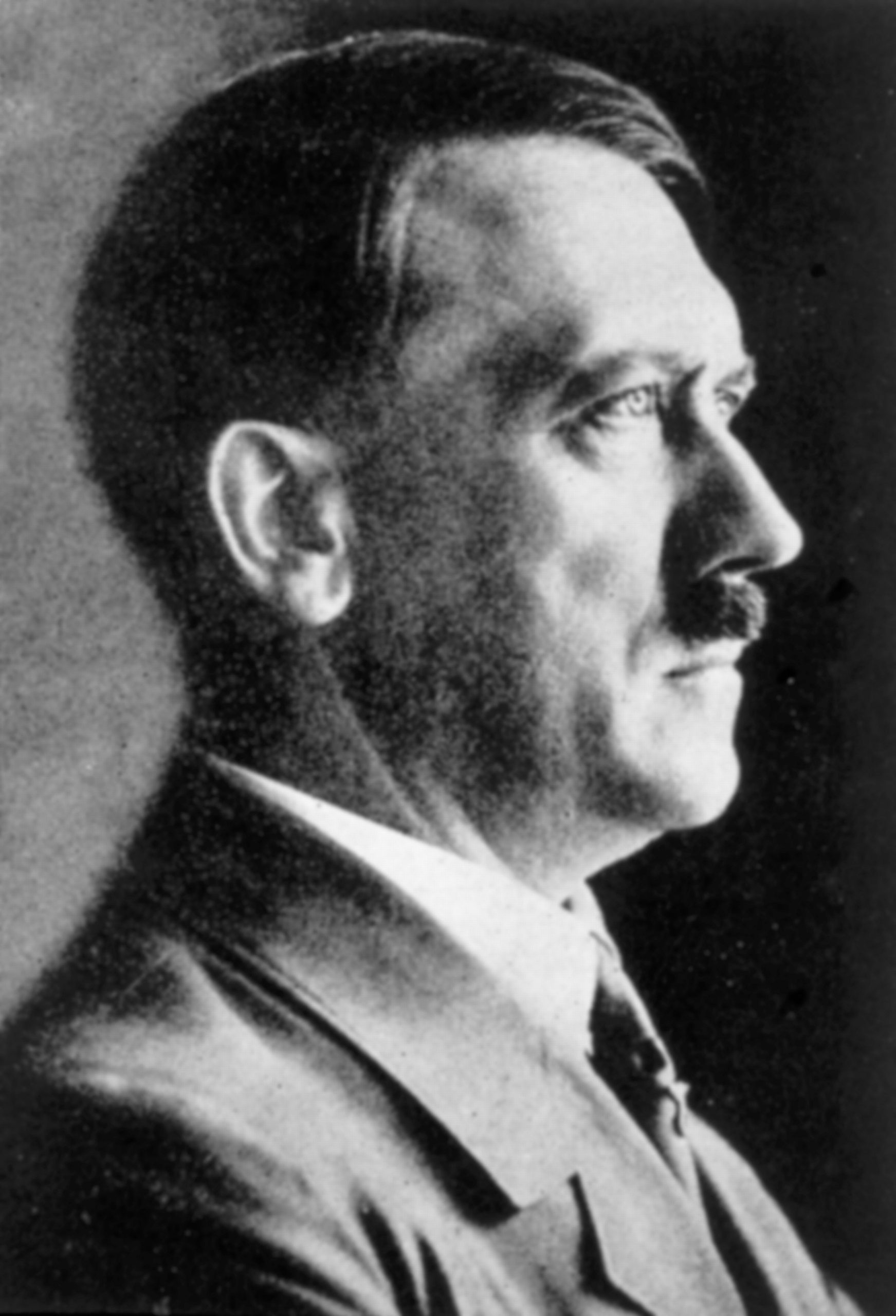Adolf Hitler was a German Politician and leader of the Nazi Party who rose to power in the early 1930s. He known for his brutal tactics and his role in the Holocaust, in which he killed millions of Jews People and other Minority groups.
In this article, we will explain the life and actions of him. We will explore the events that led to his rise to power, his Ideology, and the consequences of his actions.

Hitler’s Startup Childhood:
Adolf Hitler, the fourth of six children, was born on April 20, 1889 in Braunau am Inn, Austria, to Alois Hitler and Klara Polzl. His father, Alois, is a customs officer, expects his children to obey him without any question and known for his Explosive temper. He Frequently Criticized and physically Disciplined his son for Perceived Disobedience.
Hitler’s mother, Klara, was a loving woman who doted on her son and encouraged his Artistic interests. Despite her support, She suffered from poor health and Tagically died of breast cancer when Hitler was just 18 years old.
During his childhood, Hitler’s family moved Frequently, and he attended several different schools. Although he is deeply interest in German history and Mythology, he was a poor student and struggled in school.
Following his Father’s death in 1903, Hitler moved to Vienna to pursue his dream of becoming an artist. However, he is twice Rejectes from the Vienna Academy of Fine Arts and Struggles to make a living as a painter. He lived in poverty and Homelessness for several years, but he continued to develop his political ideas for the future of Germany.
Later in life, Hitler spoke Nostalgically about his childhood, Portraying it as a time of purity and Innocence. However, his difficult experiences with his father, the loss of his mother, and his struggles during early Adulthood likely had a profound impact on his personality and Worldview.
Schooling:
Adolf Hitler’s school years marked by Frequent moves and poor Academic performances. He attended several different schools during his childhood, as his family moved Frequently.
Despite his interest in German history, Mythology Hitler Struggled as a student and known to be a poor student. He often clashed with his teachers Frequently Reprimanded for his behavior in class.
Hitler’s father, Alois, was a customs officer who expected his children to obey him Unquestioningly. He known for his Explosive temper and often Criticized and physically Disciplined his son for Perceived Disobedience.
Hitler’s mother, Klara, was Supportive of her son’s Artistic interests and encouraged him to pursue his dreams. However, she was also in poor health and Tragically died of breast cancer when Hitler was just 18 years old.
After his Father’s death in 1903, Hitler moved to Vienna to pursue his dream of becoming an artist. He twice Rejected from the Vienna Academy of Fine Arts and Struggled to make living as a painter, spending several years in poverty, Homelessness. It was during this time that he began to develop his ideas about politics and the future of Germany.
Early life:
Adolf Hitler’s early life marked by Frequent moves, family Instability. He was born on April 20, 1889, in Braunau am Inn, Austria, to Alois Hitler and Klara Pölzl. Hitler’s father, a customs officer, had a reputation for being strict and having a quick temper. He often physically Disciplined his son and expected him to follow orders without question.
Hitler’s mother, on the other hand, was Supportive and loving towards him. She encouraged his Artistic interests and provided a Contrast to his Father’s strictness. However, she suffered from poor health, and her death from breast cancer when Hitler at 18 years old had a Profound impact on him.
During his childhood, Hitler’s family moved Frequently, and he attended several different schools. He interested in German history and Mythology, but his Academic performance is poor. He Struggled with his studies and often Reprimanded by the teachers for his behavior in class.
Following his Father’s death in 1903, Hitler moved to Vienna to pursue his dream of becoming an artist. However, he twice Rejected from the Vienna Academy of Fine Arts and struggled to make a living as a painter. He lived in poverty and Homelessness for several years, during which he developed his political ideas about the future of Germany.
Hitler’s early experiences, with his strict and physically Disciplinarian father, the loss of his mother, and his struggles during early Adulthood likely had a Profound impact on his personality and Worldview. These experiences may have Contributed to the development of his Authoritarian and Nationalist beliefs.
The Holocaust:
The Holocaust was a tragic and devastating event that took place during World War II. It was a systematic extermination of millions of Jews and other groups deemed undesirable by the Nazi regime.
The Holocaust began in 1933 when the Nazis came to power in Germany. They believed in the ideology of racial purity and saw Jews as a threat to their vision of a perfect society. Over the course of the next 12 years, the Nazis implemented a series of policies designed to isolate, discriminate, and ultimately eliminate the Jewish population.
This led to the Implementation of Policies that Stripped Jews of their rights, such as the Nuremberg Laws of 1935, which forbade marriage or sexual relations between Jews and Non-Jews and defined Jews based on their Ancestry rather than their religious beliefs.

The Nazi regime began to Implement its plan to Eliminate Jews in 1941, with the start of the “Final Solution.” This involved Rounding up Jews and Transporting them to Concentration camps, where they were Subjected to forced labor, Starvation, and Inhumane living conditions. Many were also sent to Extermination camps, where they were gassed to death in mass killings.
The Holocaust continued until the end of the war in 1945, and it is Estimated that around six million Jews were murdered, as well as millions of others. The legacy of the Holocaust is one of immense tragedy, and it has had a lasting impact on the world. The Holocaust serves as a Reminder of the dangers of Extremism, hatred, and Discrimination, and the importance of protecting the rights of all people.
It is Essential that we continue to educate ourselves about the Holocaust, so that we may work towards Preventing such Atrocities from happening again in the future.
Dictatorship:
Adolf Hitler’s rise to power and Dictatorship over Germany was marked by violence, Propaganda, and the Suppression of civil Liberties. After World War I, Germany was facing Economic and political turmoil, and Hitler’s Nazi party Capitalized on these issues to gain support.
In 1933, Hitler was Appointed as Chancellor of Germany, and he quickly Consolidated power by passing the Enabling Act, which gave him Dictatorial authority. He then began Implementing Policies that would eventually lead to World War II and the Holocaust.
One of the main tenets of Hitler’s Ideology was the belief in the Superiority of the “Aryan” race, and he Implemented Policies that aimed to purify and Strengthen the German population. This included the Persecution and murder of Jews, Homosexuals, disabled individuals, and other marginalized groups.
Hitler also Established a cult of personality around himself, with Propaganda and public speeches that painted him as a savior of the German people. He Utilized this to further Suppress Opposition and Criticism of his regime.
Under Hitler’s Dictatorship, civil Liberties were Severely Restricted. The Nazi party controlled all aspects of German life, from the media to education and the economy. Dissent was not Tolerated, and those who opposed the regime were often Imprisoned or executed.
Hitler’s Dictatorship Ultimately led to the Devastation of World War II and the deaths of millions of people. The legacy of his regime continues to be felt today, and serves as a stark Reminder of the dangers of Authoritarianism and the need to defend Democracy and human rights.
Entry into political life:
Adolf Hitler’s political life was marked by his rise to power in Germany, the Establishment of his Nazi party, and the Implementation of his Far-right Ideology.
Adolf Hitler’s political career began in 1919 when he joined the German Workers’ Party, which later became the National Socialist German Workers’ Party, Commonly known as the Nazi party. He quickly rose through the ranks of the party and was Appointed its leader in 1921.
Hitler’s Ideology Centered around the belief in the Superiority of the “Aryan” race and the need for Germany to regain its strength and power. He blamed Germany’s problems on the Treaty of Versailles, which he viewed as a humiliation and a Betrayal. He also blamed Jews and other marginalized groups for Germany’s problems, and his Rhetoric was filled with Anti-Semitic and racist ideas.
As the leader of the Nazi party, Hitler worked to gain support by holding rallies, giving speeches, and Utilizing Propaganda. The party’s Platform called for the Expansion of German territory, the purging of Jews from German society, and the Establishment of a Totalitarian state.
In 1933, Hitler was Appointed as Chancellor of Germany, and he quickly Consolidated power by passing the Enabling Act, which gave him Dictatorial authority. He then began Implementing Policies that would eventually lead to World War II and the Holocaust.
Hitler’s political life Ultimately led to the Devastation of World War II and the deaths of millions of people. His legacy continues to be felt today as a Reminder of the dangers of Extremism and the importance of Defending Democracy and human rights.
Creating the nazi party:
The Nazi party, Formally known as the National Socialist German Workers’ Party, was founded in 1919 by Anton Drexler and a group of Like-minded individuals in Munich, Germany.
Adolf Hitler joined the party shortly after its Founding and quickly rose to a leadership position, using his oratory skills and Charisma to gain support and followers.
The party’s Platform Initially Centered around Anti-Semitism and German Nationalism, calling for the Expulsion of Jews from Germany and the Establishment of a strong, centralized German state.
Adolf Hitler recognized the potential of the party as a political force, and he worked to expand its reach and influence. He Rebranded the party’s image, Adopting the Swastika as its emblem and Introducing the Nazi salute.
By the Mid-1920s, the Nazi party had gained a small but dedicated following, but it wasn’t until the onset of the Great Depression in the early 1930s that the party’s fortunes began to change. The Economic crisis, coupled with political Instability and public Dissatisfaction with the government, allowed the Nazis to gain widespread support.
Through a combination of political Maneuvering, Propaganda, and violence, Hitler and the Nazi party were able to rise to power and Establish a Dictatorship in Germany. The party’s reign marked by the Suppression of dissent, the Persecution of Minorities, and Ultimately, the Devastation of World War II and the Holocaust.
The legacy of the Nazi party and its Ideology continued to be felt today as a stark Reminder of the dangers of Extremism and the importance of Promoting Tolerance and respect for all people.
World war 1:
World War I, also known as the Great War, was a global conflict that lasted from 1914 to 1918. Adolf Hitler was a soldier in the German army during the war, and his experiences during this time had a Profound Impacting on his Worldview and political beliefs.
Hitler initially volunteered for the German army in 1914 and later Promoted to the rank of corporal. He served on the Western Front for most of the war, Participating in several major battles and Receiving several Decorations for bravery.
Hitler’s experiences during the war were Formative in shaping his Nationalist and Anti-Semitic beliefs. He deeply affected by Germany’s defeat in the war and by the harsh terms of the Treaty of Versailles, which he saw as a humiliation for the German people.
Adolf Hitler’s wartime experiences also Influenced his decision to enter politics. After the war, he joined a small Nationalist group in Munich and began to hone his public speaking skills, using his Charisma and oratory Abilities to gain a following.
Hitler’s experience in World War I would go on to shape his political Ideology and Worldview, Providing the foundation for the Ultra-nationalist and Militaristic Policies that would come to define his Leadership of Germany during World War II.

World War 2:
Hitler’s foreign policy Objectives, which Included Territorial Expansion and the creation of a “Greater Germany,” led to a series of aggressive actions in the years leading up to the war. These actions Included the Annexation of Austria and the Occupation of Czechoslovakia.
In September 1939, Hitler’s forces invaded Poland, Prompting the United Kingdom and France to declare war on Germany. This marked the beginning of World War II in Europe. Over the next several years, Hitler’s forces would wage a campaign of Conquest across Europe, Occupying much of the Continent and Engaging in brutal acts of violence against Jews and other Targeted groups.
In 1941, Hitler broke his pact with the Soviet Union and Launched a massive Invasion of the country. Despite initial success, the Invasion Ultimately bogged down in the face of determined Soviet resistance and the harsh Russian winter.
The war turned against Germany in 1942, with defeats in North Africa and the Soviet Union, and by 1944 the Allied forces had gained the upper hand. Hitler’s regime began to crumble, with several Assassination attempts on the leader, and in April 1945, Soviet forces captured Berlin, Effectively ending the war in Europe.
Adolf Hitler’s Leadership during World War II marked by brutal Policies of Genocide and Conquest, including the Holocaust, which claimed the lives of millions of Jews and other Targeted groups. His actions during the war have had a lasting impact on world history and remembered as one of the darkest periods of human history.
Becoming a leader:
Adolf Hitler’s rise to power in Germany was a complex and Multifacted process that began in the years following World War I. The country was in a state of political and Economic turmoil, and many Germans were looking for a strong leader to restore order and Stability.
Hitler joined the German Workers’ Party, which later became the Nazi Party, in 1919, and quickly rose to a Leadership position. He was a charismatic speaker and a skilled propagandist, and he used these talents to promote the party’s Ideology of Nationalism, Anti-Semitism, and Anti-communism.
In 1923, Hitler and the Nazi Party Attempted to seize power in a coup known as the Beer Hall Putsch, but the attempt failed, and Hitler arrested and Imprisoned. While in prison, he wrote Mein Kampf, a book that laid out his vision for a fascist state and became a key part of Nazi Ideology.
After his release, Hitler worked to rebuild the Nazi Party and gain support among the German people. He promised to restore Germany’s pride and power, and he played on popular fears and Prejudices to win over large Segments of the population.

In 1933, Hitler Appointed as a Chancellor of Germany, and he quickly Consolidated power, using combination of Propaganda, Intimidation and violence. He passed laws that gave him Near-total control over the country, and he Eliminated his political Opponents through a campaign of violence and Repression.
By the late 1930s, Hitler was one of the most powerful leaders in the world, and his Policies had plunged Germany and much of Europe into war. His Leadership style marked by Authoritarianism, aggression and Willingness to use violence to achieve his goals and his legacy remembered as one of the darkest chapters in the human history.
His death:
Adolf Hitler’s death is one of the most Controversial and debated events of the 20th century. According to Historical accounts, on April 30, 1945, Hitler committed suicide in his bunker in Berlin, Germany, as Allied forces closed in on the city.
Hitler’s death confirmed by his Adjutant, who found the Dictator’s body in a room with his wife, Eva Braun. The couple had Ingested cyanide Capsules, and Hitler had also shot himself in the head with a pistol. Their bodies later taken outside and burned, Accordance with Hitler’s instructions.
Despite these accounts, some conspiracy Theories suggest that Hitler may have escaped Germany and lived out the rest of his life in secrecy. However, there is no Concrete evidence to support these claims, and the Majority of Historians believe that Hitler died in the bunker in 1945.
The death of Hitler marked the end of the Nazi regime in Germany and the conclusion of World War II in Europe. It also marked the beginning of a long period of rebuilding and reconciliation in Germany, as the country came to terms with the devastation caused by the war and the Atrocities committed by the Nazi regime.
Conclusion:
Adolf Hitler was a complex and Controversial figure whose life and actions had a profound impacting on the course of 20th-Century history. While he widely reviled for his role in the rise of Nazism party and the Atrocities committed by his regime during World War II, his legacy continues to be the subject of debate and discussion.
Despite the horrors Associated with Adolf Hitler and the Nazi regime, it is important to study and understand their history in order to prevent similar Atrocities from Occurring in the future. By Examining the political, Economic, and social factors that led to Hitler’s rise to power, we can gain a deeper understanding of the forces that shape our world and work to create a more just and peaceful society.
Ultimately, Hitler’s life and legacy serve as a stark reminder of the dangers of hatred, prejudice, and Extremism, and the importance of Defending democracy, human rights, and the rule of law. It is up to all of us to learn from the mistakes of the past and work towards a more peaceful and Equitable future. Visit 21hashtags For More Articles.
